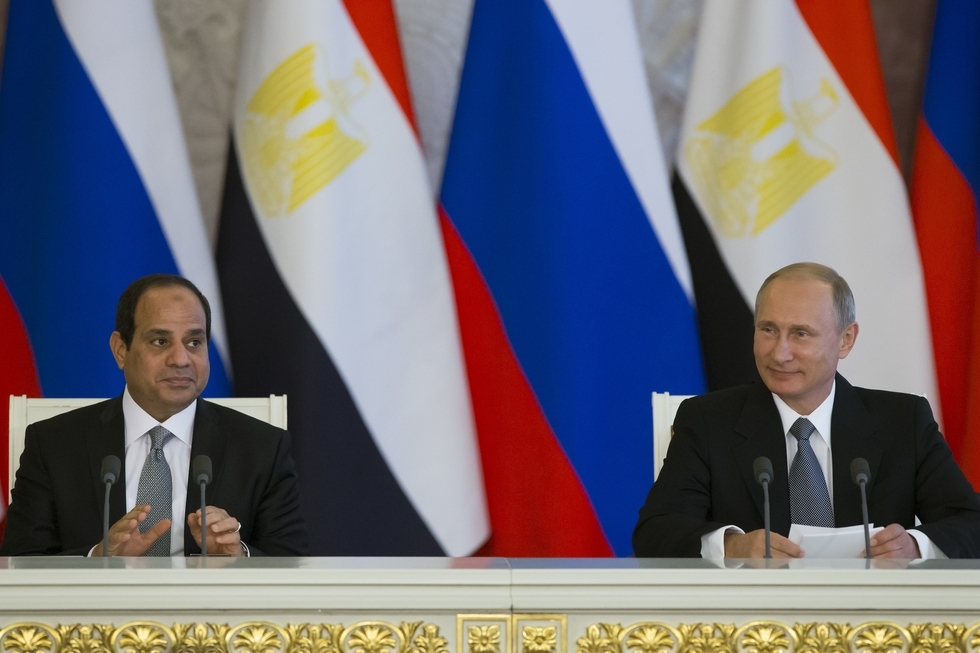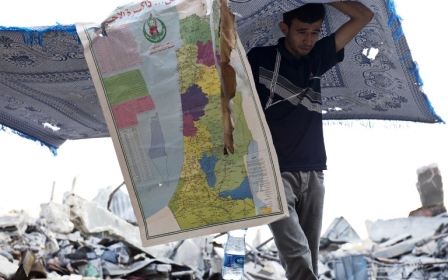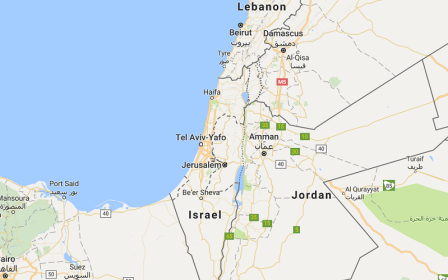Putin wants to be Middle East peacemaker, Egypt's Sisi says

Russian President Vladimir Putin wants to host an Israeli-Palestinian summit to revive peace talks, Egyptian President Abdel Fattah al-Sisi said in an interview published on Monday.
Sisi also told state newspaper editors that he believed Israel was increasingly convinced of the need for a peace deal, saying it was a "positive sign".
But Palestinian infighting between Hamas in Gaza and Palestinian President Mahmoud Abbas's Fatah in the West Bank remained an obstacle, he added.
Talks between Israeli Prime Minister Benjamin Netanyahu and Abbas have been suspended since 2014, despite a push by Washington and France to resume the peace process.
Sisi, who is seen as having good ties with both Israel and the Fatah-dominated Palestinian Authority, has also been pushing for a resumption of negotiations.
"Putin has told me that he is ready to receive both [Abbas] and Netanyahu in Moscow to carry out direct talks to find a solution and solve the issue," Sisi said.
"I see that the conviction of the importance of peace is rising among the Israeli side, and the conviction about finding an exit to the issue is a positive sign.
"At the same time, it is important to end the Palestinian-Palestinian rift... and to have national reconciliation between the Palestinian Authority and Hamas so that the climate be ready for real efforts to establish a state," he said.
Sisi said last month that his country was making serious efforts to break the deadlock between Israel and the Palestinians.
His remarks followed a trip by Egypt's Foreign Minister Sameh Shoukry to Israel, the first in nine years.
Sisi's comments come in light of a recent poll which found that a slim majority of Israelis and Palestinians favoured a peace settlement establishing a Palestinian state alongside Israel.
The results of the joint poll may provide some small signs of encouragement when peace prospects appear bleak. The last round of negotiations broke down two years ago, and a resumption of talks, much less progress between the sides, at this point seems unlikely.
Tamar Hermann, an Israeli political scientist who conducted the survey with Palestinian pollster Khalil Shikaki, told Haaretz newspaper that under the current circumstances, the results were "not amazingly encouraging," but also "not discouraging".
"It showed there is still some basis for optimism with the right leadership," she said. "Right now I don't see on the horizon a leader on either side willing or capable of using this as a springboard for intensifying the negotiations. But it's not impossible."
Egypt became in 1979 the first Arab country to sign a peace treaty with Israel, after four wars.
Netanyahu has called on Palestinians to engage in direct negotiations with Israel, but Palestinian leaders say years of talks have not ended Israel's occupation of the West Bank.
Abbas has instead tried to put pressure on Israel through diplomacy at the UN.
New MEE newsletter: Jerusalem Dispatch
Sign up to get the latest insights and analysis on Israel-Palestine, alongside Turkey Unpacked and other MEE newsletters
Middle East Eye delivers independent and unrivalled coverage and analysis of the Middle East, North Africa and beyond. To learn more about republishing this content and the associated fees, please fill out this form. More about MEE can be found here.




